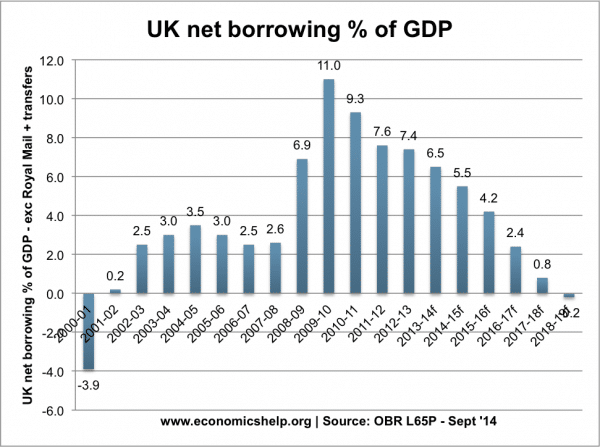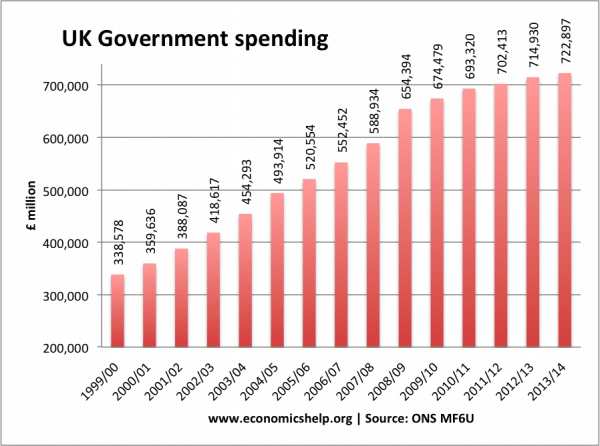How has the coalition government fared on its economic policies?
Firstly, there are quite a few paradoxes.
Ignore own promises. The first paradox of the coalition government is the best thing they did was to ignore their own advice. When they came to power, they promised spending cuts, austerity and a balanced budget within a few years. Fortunately, when they realised the damage they inflicted 2010-12, they quietly gave up on this serious austerity plan and delayed any major spending cuts until sometime tomorrow (or if you prefer, until someone else is chancellor)
It is a great relief they failed to meet their budget deficit targets. Many admonish the government for failing to meet their budget deficit targets. Borrowing is currently £91.3 bn – much higher than the initial long-term target of £40bn. But, my only real emotion is relief. If we had insisted on cutting an extra £50bn of public sector spending, the economy would resemble Italy, Portugal or maybe even Greece. We would certainly not be seeing economic growth of 3% and falling unemployment.

In the land of ‘tomorrow, always tomorrow’ – this time the government has promised to balance the budget by 2019/20 – there cannot be anyone who takes the government seriously on this- not least the bond market. But, as usual it doesn’t really matter.
Borrowing wasn’t so bad after all. In 2010, many very serious people were warning over the dangers of high government borrowing. There were no shortages of apocalyptic warnings that unless we immediately get borrowing under control, inflation and bond yields would immediately rise and we would soon resemble a quasi Zimbabwe economy. Of course, neither has happened. Bond yields are at record lows and and inflation is below the Government’s target. It’s never been so cheap and easy for the government to borrow.
Bear in mind, bond yields are expected to rise with economic recovery.
Conclusion
Everyone seems to agree the chancellor is the most political of chancellors – to the cynically minded, every economic decision seems to be calculated to improve the Conservative chances in the marginal constituencies. This is not all bad, the democratic mandate does at least curb some of the elitist instincts of the party. Perhaps the desire to please the electorate was a significant decision in delaying austerity. Without a looming general election, perhaps we would be moving towards a US style private health care.
Overall, there is a sense it could have been worse – especially compared to Europe. But, ‘it could have been worse’ is not the highest praise.



He may be the most political of chancellors, he is however, the least charismatic.